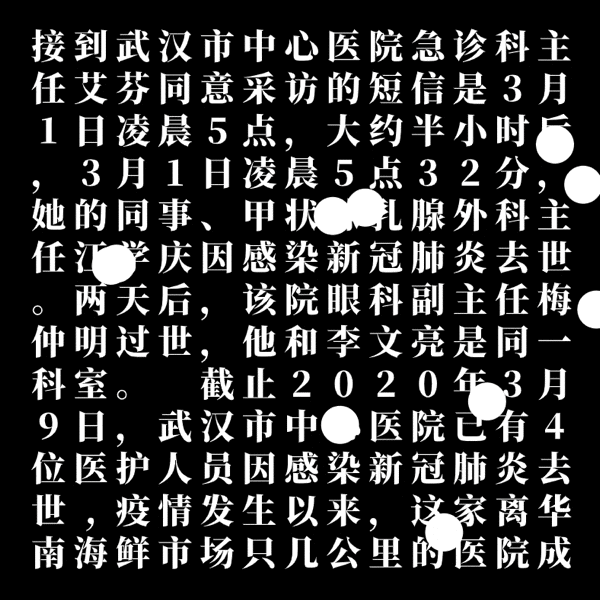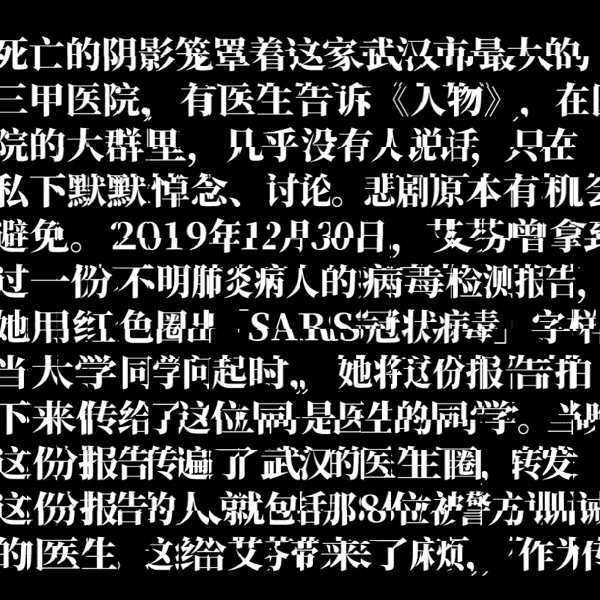In the beginning of COVID, an interview article about a Wuhan whistleblower doctor being disciplined on charges of “spreading rumors” went viral on Chinese social media, shortly before wiped out by internet censors. In response to it, Chinese netizens resorted to hundreds of interesting ways to save this article from vanishing, by rewriting it in calligraphy, flipping it upside down, filling it with emojis, translating it into fictional languages, and then sharing it in a relay.
This piece was inspired by this mass internet anti-censorship movement across Chinese social media. A series of algorithms were created to disrupt the words in a way that is still readable, but can bypass the “optical character recognition” AI censors.
“Words can be wiped out, but thoughts and memories will remain.”


Tools used: coded with p5.js
Text source: 人物 magazine
Typeface: Source Han Serif
Ins: @fakeplastickiko

